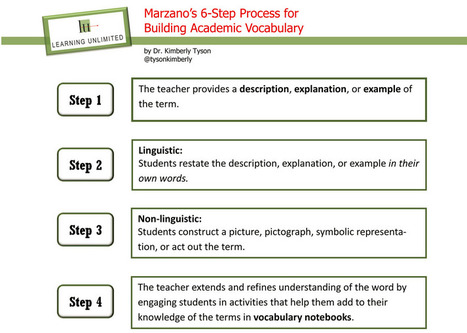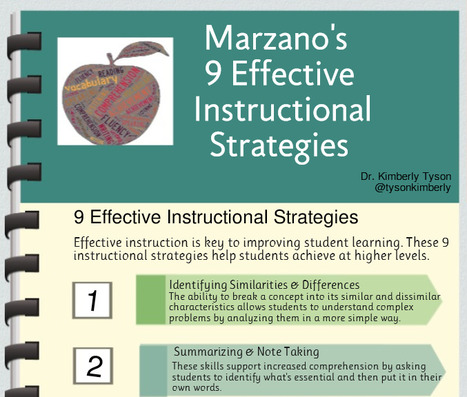
Get Started for FREE
Sign up with Facebook Sign up with X
I don't have a Facebook or a X account
 Your new post is loading... Your new post is loading...
 Your new post is loading... Your new post is loading...
Jose Ines Andrade's curator insight,
March 11, 2016 10:43 PM
With Common Core State Standards coming into play quickly the issue of vocabulary is coming into play in a new way. This post provides a look at six strategies to use with vocabulary instruction. Get a great look at the strategies and learn some of the lessons that have been learned. |

Kirsten Macaulay's curator insight,
February 19, 2014 4:30 AM
A literacy-rich environment in classrooms and schools, for example, is an important K-12 foundation to support and extend effective instruction. And, effective vocabulary instruction (here, here, here, and here, too) is an integral part of a comprehensive literacy framework and supports student learning and achievement. Building a common language educators is also important, though frequently lacking. A common language helps teachers, coaches, and administrators communicate more easily and specifically around instructional strategies associated with literacy instruction, educational initiatives, and the Common Core State Standards |













Many schools are exploring online instruction as a component of education (including K-12). If you are interested in learning how one organization (edmentum) had the Marzano Research Laboratory review "the impact of strategies on student academic outcomes in an online learning environment." The report explores best practices in three areas:
* Marzano Dimension: Strategies Involving Routine Events - This area covers six best practices, including
* Communicating course /assignment rules and procedures
* Allowing students to keep track of their learning progress
* Marzano Dimension: Strategies Enacted on the Spot - This area also discusses six best practices, including:
* Providing help to understand and practice new knowledge
* Allowing students to ask questions during online course/assignment
* Marzano Dimension: Strategies Addressing Content - This area has only one practice:
* Adding external resources to assignments aligned to local objectives
There is a page devoted to each of the best practices. This information may not be new to you, but if teaching online is new to you there are great suggestions to help you design a course (or teach a course) that will lead to a more successful implementation.
The link to this file is located at: http://www.edmentum.com/sites/edmentum.com/files/resource/media/0317-01%20Marzano_eBook.pdf